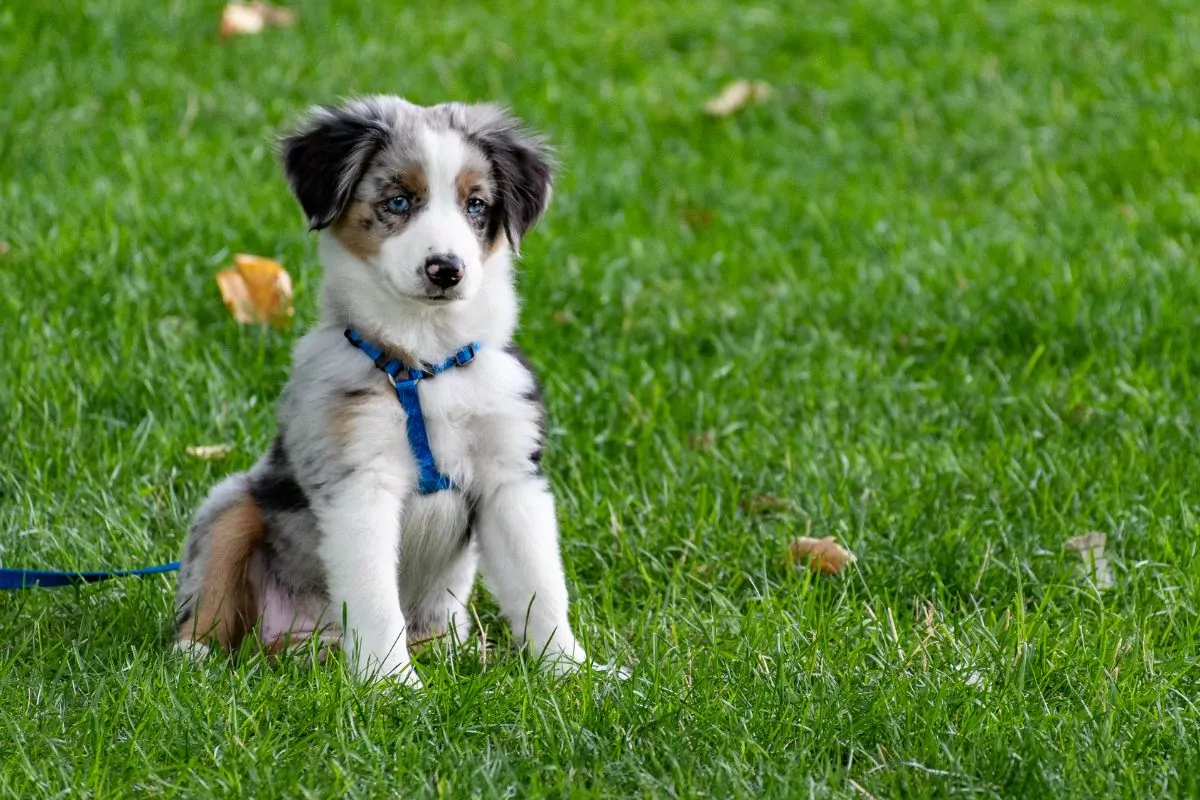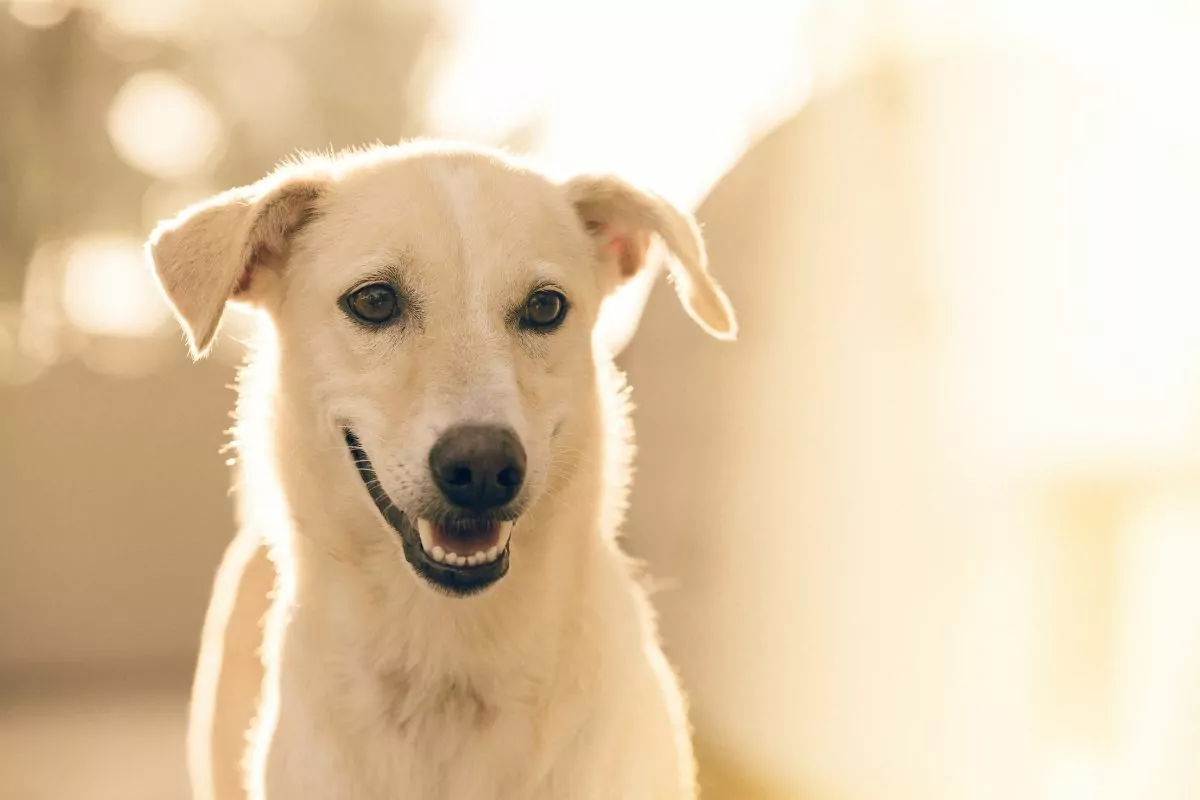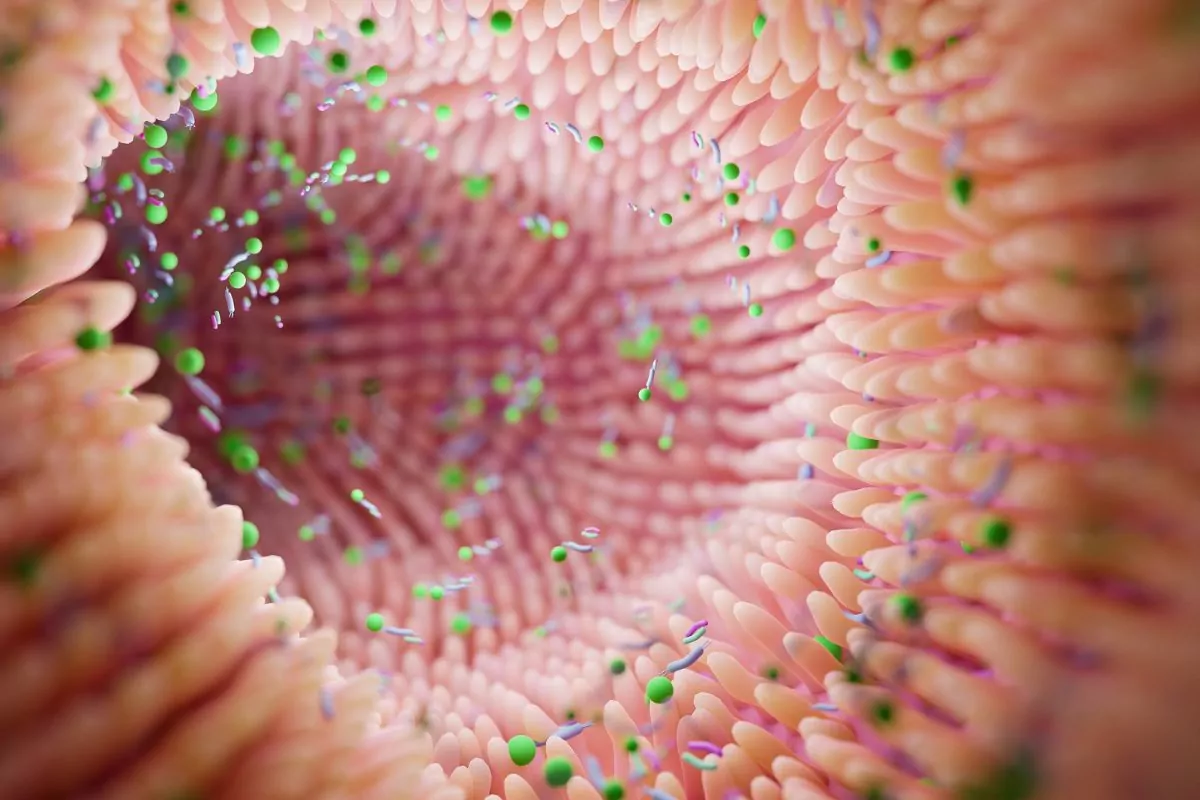Probiotics for Dogs
Homemade probiotics for dogs, similar to their commercial counterparts, consist of beneficial live microorganisms. When appropriately administered, these probiotics can provide significant health advantages to canines.
These beneficial bacteria, primarily Lactobacillus acidophilus and Bifidobacterium species, colonize the canine gut, enhancing intestinal flora balance.
They actively modulate the immune system, reduce gastrointestinal disturbances, and inhibit pathogenic bacterial growth. Veterinarians increasingly recommend probiotics for managing diarrhea, enhancing gut health, and boosting overall immunity.

What Type of Probiotic is Best for Dogs?
Selecting the optimal probiotic necessitates a nuanced understanding of the dog’s specific gastrointestinal environment and health requirements. The efficacy of a probiotic largely depends on the strain specificity and viability.
For dogs, strains like Enterococcus faecium and Bacillus coagulans have shown promising results in enhancing gut flora and aiding digestion. Lactobacillus acidophilus and Bifidobacterium species are also widely recognized for their beneficial impact on canine intestinal health.
These strains help modulate the immune response, improve nutrient absorption, and inhibit harmful pathogens.
When choosing a probiotic, it’s crucial to consider the CFU (colony-forming units) count, ensuring a sufficient quantity of live bacteria reaches the gut.
The canine probiotics should be in a capsule or protected to survive the acidic gastric environment. We recommend using formulations explicitly designed for canines, as human probiotics may not offer the same benefits.
Veterinarians often suggest probiotics during or after antibiotic treatments to restore gut flora balance. Continuous research in this field is expanding our understanding, tailoring probiotic therapies more precisely to canine needs.
How to Make Homemade Probiotics for Dogs
To enrich your dog’s everyday life and gut flora, we prepared a few homemade probiotics for dogs recipes, or in other words, natural probiotics for dogs. These homemade recipes can be given as probiotics for puppies, too, delicious yet healthy.

Canine Gut-Health Yogurt Treat
Time: 15 minutes
Serving Size: 10 servings
Prep Time: 10 minutes
Nutritional Facts per Serving
- Calories: Approximately 30 kcal
- Protein: 2g
- Fat: 1g
- Fiber: 0.5g
- Probiotics: Varies with yogurt used.
Equipment Needed
1. Mixing bowl
2. Measuring cups and spoons
3. Silicone mold or ice cube tray
4. Spoon or spatula
Ingredients
- 1 cup plain, unsweetened yogurt (preferably with live cultures)
- half a cup pure pumpkin puree (not pumpkin pie filling)
- 1 tablespoon ground flaxseed (optional for added fiber)
- 1 small ripe banana, mashed
Directions
- Combine Ingredients: In a mixing bowl, thoroughly mix the yogurt, pumpkin puree, mashed banana, and ground flaxseed until well combined. Ensure that no large chunks remain.
- Prepare Molds: Spoon the mixture into the silicone mold or ice cube tray, filling each section evenly.
- Freeze: Place the molds in the freezer and freeze for at least five hours or until completely solid.
- Serve: Once frozen, pop out a yogurt treat and serve it to your dog. Treats should not exceed ten percent of your dog’s daily caloric intake.
- Storage: Store the remaining treats in an airtight container in the freezer for up to two months.
Probiotic Peanut Butter and Kefir Delight
Time: 15 hours, 52 minutes
Serving Size: 12 servings
Prep Time: 10 minutes
Nutritional Facts per Serving
- Calories: Approximately 45 kcal
- Protein: 3g
- Fat: 2g
- Fiber: 1g
- Probiotics: Varies with kefir used.
Equipment Needed
1. Blender or food processor
2. Measuring cups and spoons
3. Muffin tin or small silicone molds
4. Mixing bowl
5. Spoon or spatula
Ingredients
- 1 cup plain kefir (ensure no xylitol or artificial sweeteners)
- 1/2 cup natural peanut butter (xylitol-free)
- 1/4 cup rolled oats
- 1 tablespoon honey (optional)
- 1 small apple, peeled and cored
Directions
- Prepare Apple Puree: Puree the peeled and cored apple until smooth in a blender or food processor.
- Combine Ingredients: In a mixing bowl, mix the kefir, natural peanut butter, apple puree, rolled oats, and honey (if using). Stir until the mixture is well blended.
- Fill Molds: Spoon the mixture into the muffin tin or silicone molds, filling each section evenly.
- Freeze: Place the tin or molds in the freezer and freeze for at least 15 hours or until solid.
- Serve: Once frozen, remove a treat from the mold and offer it to your dog, ensuring it’s an appropriate size for their diet.
- Storage: Keep the remaining treats in an airtight container in the freezer for up to three months.
Blueberry Bliss Probiotic Pupsicles
Time: 40 minutes
Serving Size: 15 servings
Prep Time: 10 minutes
Nutritional Facts per Serving
- Calories: Approximately 20 kcal
- Protein: 1g
- Fat: 0.5g
- Fiber: 0.7g
- Probiotics: Varies with yogurt used.
- Antioxidants: Present from blueberries
Equipment Needed
1. Blender or food processor
2. Measuring cups and spoons
3. Silicone ice pop molds or small paper cups
4. Wooden popsicle sticks (optional)
5. Mixing bowl
Ingredients
- 1 cup plain, unsweetened yogurt (rich in live cultures)
- 1/2 cup fresh or frozen blueberries
- 1 banana, ripe and mashed
- 1 tablespoon chia seeds (optional for added omega-3 fatty acids)
- 1/4 cup water (if needed for blending)
Directions
- Blend Blueberries and Banana: Combine the blueberries and banana in a blender. Blend until you achieve a smooth consistency. Add a bit of water if needed to facilitate blending.
- Mix with Yogurt: Pour the blueberry and banana mixture into a mixing bowl. Add the yogurt and chia seeds, stirring until evenly combined.
- Fill Molds: Carefully spoon the mixture into the silicone molds or paper cups. If using paper cups, insert a wooden popsicle stick into the center of each.
- Freeze: Place the molds or cups in the freezer and freeze for at least 30 minutes or until the popsicles are fully set.
- Serve: Once frozen, remove a pupsicle from the mold and let your dog enjoy this probiotic-rich treat. Be sure to serve an appropriate amount based on your dog’s size and dietary needs.
- Storage: Store any leftover pupsicles in the freezer, wrapped individually or in an airtight container, for up to one month.
Sauerkraut Surprise for Dogs
Time: 24 hours, 45 minutes
Serving Size: 15 servings
Prep Time: 30 minutes
Nutritional Facts per Serving
- Calories: Approximately 15 kcal
- Fiber: 1g
- Vitamin C: 10% of Daily Value
- Probiotics: Naturally occurring from fermentation
Equipment Needed
1. Large glass jar with lid
2. Mixing bowl
3. Knife and cutting board
4. Measuring cups and spoons
Ingredients
- 1 medium head of cabbage, finely shredded
- 2 tablespoons of sea salt (non-iodized)
- 1 teaspoon caraway seeds (optional)
- 4 cups filtered water
Directions
- Prepare Cabbage: Rinse and finely shred the cabbage, discarding the hard stem.
- Mix Ingredients: Mix the shredded cabbage with sea salt and caraway seeds in a big bowl.
- Massage the cabbage with your hands for about 10 minutes until it releases its natural juices.
- Jar Packing: Pack the cabbage tightly into the glass jar, submerging it under its liquid.
- Add Water: Pour filtered water to cover the cabbage if submerged.
- Seal and Ferment: Seal the jar and let it sit at room temperature, kept from direct sunlight, for 24 hours.
- Check Fermentation: After 24 hours, check if the cabbage is fermenting (bubbles forming). If not, let it ferment for a few more days, checking daily.
- Refrigerate: Once fermentation starts, store the sauerkraut in the refrigerator for up to a month.
- Serve: Offer a small amount as a treat or mix it into your dog’s food.
Banana-Carrot Probiotic Pooch Treats
Time: 35 minutes
Serving Size: 12 servings
Prep Time: 10 minutes
Cook Time: 25 minutes
Nutritional Facts per Serving
- Calories: Approximately 40 kcal
- Fiber: 1.5g
- Vitamin A: 20% of Daily Value (from carrots)
- Probiotics: Varies with yogurt used
Equipment Needed
- Baking sheet
- Parchment paper
- Blender or food processor
- Mixing bowl
- Measuring cups and spoons
- Spoon or spatula
Ingredients
- 1 large banana, ripe
- 1 medium carrot, finely grated
- 1 cup plain, unsweetened yogurt (rich in live cultures)
- 2 cups whole wheat flour
- 1/4 cup water (as needed)
Directions
- Preheat Oven: 350°F (175°C), use a baking sheet with parchment paper.
- Blend Banana and Yogurt: Combine the banana and yogurt until smooth.
- Combine Ingredients: Mix the banana-yogurt blend with the grated carrot in a mixing bowl. Gradually add the whole wheat flour, adding water if the mixture is too dry.
- Form Treats: Use a spoon to place small treat-sized balls or shapes on the prepared baking sheet.
- Bake: Bake the treats in a preheated oven for 25 minutes or until golden brown and firm.
- Cool: Let the treats cool completely before serving your dog.
- Storage: Store in an airtight container in the refrigerator for up to one week or freeze for longer storage.
Coconut Probiotic Pooch Bites
Time: 60 minutes
Serving Size: 20 servings
Prep Time: 30 minutes
Nutritional Facts per Serving
- Calories: Approximately 25 kcal
- Healthy Fats: 2g (from coconut)
- Fiber: 1g
- Probiotics: Varies with kefir used
Equipment Needed
1. Blender or food processor
2. Measuring cups and spoons
3. Silicone mold or small ice cube tray
4. Mixing bowl
5. Spoon or spatula
Ingredients
- 1 cup unsweetened coconut flakes
- 1/2 cup coconut oil, melted
- 1 cup plain kefir (ensure no xylitol or artificial sweeteners)
- 1 tablespoon honey (optional)
Directions
- Blend Coconut Flakes: Process the coconut flakes until finely ground in a blender.
- Combine Ingredients: In a mixing bowl, stir together the ground coconut, melted coconut oil, kefir, and honey (if using) until well blended.
- Fill Molds: Spoon the mixture into the silicone molds or ice cube tray, filling each section evenly.
- Freeze: Place the molds in the freezer and freeze for at least 30 minutes or until the bites are firm.
- Serve: Once frozen, pop out a coconut bite and offer it to your dog as a probiotic-rich treat.
- Storage: Store the remaining bites in an airtight container in the freezer for up to three months.
Kefir Pumpkin Probiotic Paws
Time: 7 hours, 26 minutes
Serving Size: 16 servings
Prep Time: 10 minutes
Nutritional Facts per Serving
- Calories: Approximately 20 kcal
- Fiber: 0.5g (from pumpkin)
- Probiotics: Varies with kefir used
- Vitamin A: Good source from the pumpkin
Equipment Needed
1. Mixing bowl
2. Measuring cups and spoons
3. Silicone paw-shaped molds or standard ice cube tray
4. Spoon or spatula
5. Blender (optional if using canned pumpkin)
Ingredients
- 1 cup plain kefir (ensure no xylitol or artificial sweeteners)
- 1 cup pure pumpkin puree
- 1 teaspoon ground cinnamon (optional, for flavor)
- 1 tablespoon honey (optional for sweetness)
Directions
- Prepare Pumpkin Mixture: If using fresh pumpkin, blend until smooth. For canned pumpkins, proceed to the next step.
- Combine Ingredients: In a mixing bowl, thoroughly mix the pumpkin puree, kefir, cinnamon (if using), and honey (if using) until well combined.
- Fill Molds: Carefully spoon the mixture into the silicone molds or ice cube tray, filling each section evenly.
- Freeze: Place the molds in the freezer and freeze for six/seven hours or until the treats are fully set.
- Serve: Once frozen, pop out a Kefir Pumpkin Probiotic Paw and offer it to your dog as a nutritious treat.
- Storage: Keep the remaining treats in an airtight container in the freezer for up to two months.
Note: Always check with your vet before including new ingredients in your dog’s diet, especially if your dog has specific health concerns. This recipe is a supplementary treat and should not replace a nutritionally balanced canine diet.
Food Dogs Can Eat With Probiotics
Incorporating canine probiotics into a dog’s diet can be effectively achieved through certain foods, augmenting gastrointestinal health. Fermented vegetables, like sauerkraut and kimchi, offer live bacterial cultures, improving gut flora.
Plain, unsweetened yogurt, particularly those containing live lactobacilli, is a viable probiotic source. With its diverse probiotic strains, kefir stands out for its nutritional benefits. Additionally, high-fiber foods like pumpkin, sweet potato, and oats encourage beneficial bacterial growth in the canine gut.
These foods and a balanced diet support intestinal health and overall well-being. Remember to always consult with your vet before giving new foods to ensure suitability for each dog’s specific health needs.
How to Store Homemade Canine Probiotics
Storing homemade probiotics for dogs necessitates careful attention to maintain viability and efficacy. Refrigeration is essential for preserving the live cultures in homemade formulations like fermented foods or yogurt-based treats.
Airtight containers are imperative to prevent contamination and moisture ingress. For longer shelf life, freezing is recommended, especially for treats or mixtures prone to spoilage.
Regularly check for signs of decomposition, such as mold or off-odors, to ensure the safety and effectiveness of the probiotic content.
What is a Microbiome?
A microbiome is a complex community of microorganisms residing in a specific environment, including bacteria, fungi, viruses, and protozoa. In medicine, it often pertains to the canine gut microbiome, which plays a critical role in health and disease.
These microbial inhabitants are pivotal in nutrient metabolism, immune system modulation, and protection against pathogens. Diet, genetics, and lifestyle influence the gut microbiome’s composition and diversity.
Disruptions in this microbiome balance, termed dysbiosis, are linked to various conditions, including obesity and inflammatory bowel disease, highlighting its integral role in overall health.

How Probiotics Support Canine Gut Health
Probiotics and live microorganisms significantly benefit from maintaining and restoring canine gut health. They colonize the dog’s gastrointestinal tract, contributing to a balanced intestinal microbiota. This balance is crucial for optimal nutrient absorption, digestion, and overall health.
When administered in adequate amounts, probiotics like Lactobacillus acidophilus and Bifidobacterium species actively suppress the growth of damaging bacteria, reducing the risk of gastrointestinal infections and disturbances. They also play a vital role in modulating the immune system, enhancing the gut’s barrier function, and reducing inflammation.
In cases of dysbiosis, where there’s an imbalance in gut flora often caused by factors like stress, dietary changes, or antibiotic use, probiotics help reestablish the healthy microbial equilibrium. Additionally, they actively manage and prevent diarrhea, a frequent problem in dogs, by encouraging the growth of beneficial bacteria and contributing to consistent fecal formation.
Veterinarians frequently recommend probiotic supplements as part of a comprehensive approach to managing gut health in dogs, emphasizing the importance of species-specific strains for optimal efficacy.
How Fast do Canine Probiotics Work?
The efficacy and speed of canine probiotics depend on various factors, including the dog’s health status and the specific probiotic strain. You may generally observe some improvements in gastrointestinal symptoms like diarrhea within a few days of starting probiotic supplementation.
However, a longer period, typically several weeks, may be required for more substantial changes in gut flora and overall health benefits. It’s essential to maintain consistent administration for optimal results.
Winding Up
We explored various aspects of probiotics for dogs and gut health. Probiotics, such as Lactobacillus acidophilus and Bifidobacterium, benefit dogs by enhancing gut flora, immunity, and nutrient absorption. Specific strains and adequate dosages are crucial for effectiveness.
Dairy-free and homemade probiotics for canines provide alternatives for diverse needs. The microbiome, comprising diverse microorganisms, is pivotal in overall health, with gut microbiome balance being essential. Probiotics support canine gut health by modulating the immune system, preventing infections, and managing diarrhea.
The onset of probiotics’ effects varies, with initial improvements often visible within days, but some dogs require more time for significant gut flora changes.
